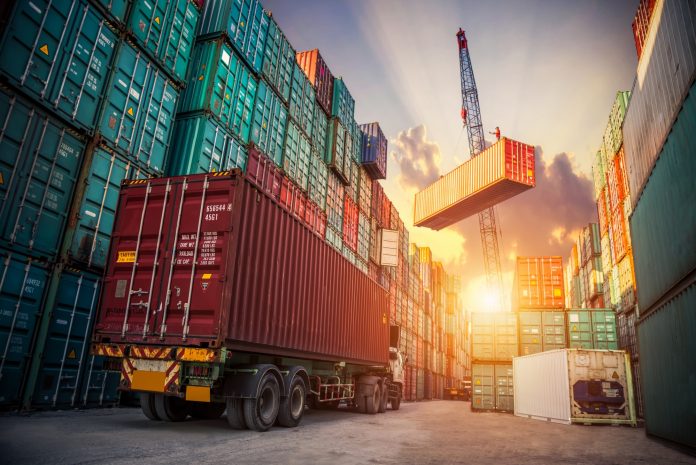
A solid and efficient working relationship with a freight forwarder can deliver a multitude of benefits to a business.
By Transolve Global Managing Director Rachael Budd.
From streamlined logistics and lower freight costs through to quicker transit times, having a logistics partner you can rely on to operate with your best interests in mind is invaluable as it enables you to free yourself from worrying about freight, to being able to focus on other parts of your business.
Irrespective of what stage of the working relationship you are at with your freight forwarder – whether it is the beginning, or you are considering switching providers, or you are happy with your current freight forwarder – here are 15 tips to help you ensure a solid and beneficial relationship with your freight forwarder:
-
The foundation comes first
When choosing the right freight forwarder for your business it is vital to ensure that their services align with your needs. It is also important to evaluate whether this continues to be the case when working with the same freight forwarder over the long-term.
A core element of a strong foundation is ensuring that you and your supplier have agreed on the Incoterms (International Commerce Terms), and subsequently relayed these to your freight forwarder at the initial quoting stage. As a Customs requirement on all commercial invoices, Incoterms greatly reduce the risk of potentially costly misunderstandings. It’s important to know your Incoterms and discuss them with your freight forwarder prior to any shipments, as they identify the division of costs and risks between the buyer and seller when shipping internationally.
-
Time is of the essence
As timeliness is critical in international shipping, it is essential to select a freight forwarder that can commit to your timeline, not just for the initial project, but also for an ongoing basis. The ability to adhere to deadlines will help you avoid costly delays and the associated stress of rushed decisions, missed shipments and more.
-
Communication is key
Communication is the fundamental component in ensuring an efficient and productive working relationship with your freight forwarder. Outlining expectations, establishing responsibilities and sharing information about past, current and future projects across both parties is the key to creating and sustaining a healthy, productive and transparent working relationship.
-
Delineate the roles
Specific roles and responsibilities should be outlined, allocated and agreed upon as soon as possible when you have chosen your freight forwarder. Having clarity on the roles that certain individuals fulfill, or which party is responsible for particular parts of the logistics process will not only assist with the daily communication between both businesses but will reduce the risk of potential misunderstandings.
-
Define your drivers
Every business has different drivers and needs. For example, some companies are driven by cost, others by time – others by a combination pending the goods being transported. It is important to communicate your priorities to your freight forwarder so they can support you accordingly and devise the best freight forwarding strategy for your needs.
-
Failing to plan is planning to fail
A universal phrase that is equally at home in the world of freight forwarding as anywhere else, failing to plan your shipments creates unnecessary time and cost pressures. Simultaneously it contributes to a fractured working relationship with your freight forwarder, as they cannot proactively plan the logistics process to ensure you the reliable and efficient service you deserve.
Last minute shipments often result in complications such as difficulty finding space, higher price points or delayed containers, therefore it is a situation best avoided as much as absolutely possible.
-
Consistency reigns supreme
Consistency and regularity enables your freight forwarder to offer you the optimal transit solution in terms of both time and cost. And so, it is vital to be transparent and inform them of any frequent and consistent shipments you may have so they can plan ahead and provide you with the logistics solution that best suits your needs, in a time and cost effective manner.
-
Discuss documentation
It’s not an overstatement to say that ultimately, the success or failure of a shipment comes down to documentation. All the forward planning in the world cannot overcome issues of lost, forgotten or misinterpreted documentation. In order to get the most out of your freight forwarder, it is important to work in conjunction with them and discuss documentation management in detail and confirm how documents will be obtained, organised and sent, plus who will be responsible for this.
-
Focus on the long-term
A genuine business relationship with your freight forwarder will provide your business with an array of benefits over the long-term. Reduced shipping costs, quicker transit speeds and a streamlined, dynamic workflow are just some of the advantages your business will reap the rewards from as your freight forwarder gets to understand your preferences and needs more comprehensively over time.
These savings and advantages far outweigh the short-term savings achieved through chasing lowest price vendors on a per-shipment basis. Therefore, one of the best ways to make the most of working with a freight forwarder is to select a freight forwarder and treat them as a part of your logistics team – not an outsourced, per-project service.
-
The details matter
When you initially reach out to a freight forwarder, you will probably receive a proposal from the sales or business development team. Upon receipt of the proposal, it is vital to review it and see if anything is missing or needs to be added, to check the pricing is correct and to inform the freight forwarder of anything else that might need to be disclosed.
It is imperative to ensure that the proposal is an accurate reflection of how your account will operate so you can be certain you will get exactly what you need from your freight forwarder. In addition, it is just as important to evaluate whether this continues to be the case, or whether new updates are required, when working with the same freight forwarder over the long-term.
-
Impart your preferences
Applicable to new arrangements, it is important to define your preferences with regards to receiving and delivery procedures. Work with your freight forwarder to define and document how you want your freight shipments to be received and delivered.
Ideally your freight forwarder should utilise an internal implementation checklist to ensure that no steps or preferences are omitted. Implementation checklists help to ensure that all interactions and agreements made between you and the sales team are then communicated clearly with the rest of the freight forwarding team to ensure a smooth operation.
The more defined these processes are, the more streamlined your logistics process can be. So, whether it is a request for side loaders, acquiring keys, access to a warehouse, notification upon delivery of freight at a warehouse, receiving staff details and more, the implementation plan will ensure everything is documented and accounted for.
-
Money matters
Defining the invoice process and making it as smooth as possible alleviates any potential bottlenecks when it comes to finance. It is important to confirm the following with your freight forwarder: the right contact to receive invoices, the best way to receive invoices, if there are any specific reference numbers required on the invoice (eg, purchase order or project number), or if there is an accounting system you’d like the freight forwarder to enter your invoices into to make it easier for your team to pay and track invoices.
-
Clarify your contacts
Whether you are commencing a new relationship with a freight forwarder or are in a well-established one where either party has experienced some team changes, it is important to know who the main points of contacts are across both businesses. Who can you reach out to if you have some questions or need some help, and what is the best mode of communication – phone, email or other?
Ensuring that both you and your freight forwarder have the relevant and up-to-date contact information will help ensure a dynamic relationship that can keep your freight moving, and not getting stuck or delayed due to unanswered phone calls or emails.
-
Transparency throughout
Logistics can sometimes appear to be a convoluted and complicated process. That’s why transparency is key between a business and their freight forwarder. It is essential that your logistics partner is open with you and happy to disclose information across the entire logistics process, from documentation and coordinating shipment, through to tracking the goods.
Furthermore, a good working relationship means having the ability to openly broach and discuss potential issues or problems, such as the Suez Canal incident, that may impact on the logistics function and proactively work towards alternative options that fulfill your business needs.
-
Flexibility
With the ever-evolving global landscape that is logistics, sometimes the most carefully laid out logistics plans can fall through. From the Covid-19 pandemic and the border closures, through to the vessel recently blocking Suez Canal through to industrial action at the Ports, it is apparent that many external forces can impact freight forwarding plans.
It’s important to not only have a freight forwarder who is experienced in managing change, but also to have a working relationship where agility and flexibility is valued and trust exists. Only then can the freight forwarder react with the speed and agility required to plan and execute an alternative option through all means necessary for your business,
It’s fair to say that in order to make the most of working with a freight forwarder, trust and communication is key. By taking the correct steps at the beginning of a relationship to set up parameters and expectations, and then continually working to maintain an open, transparent and dynamic rapport, is the optimal way to ensure that your working relationship with your freight forwarder keeps your business moving well into the future.
 About Rachael Budd
About Rachael Budd
Rachael Budd is the founder and president of Transolve Global, a freight forwarding company that challenges the traditional ways of freight forwarding and uses innovative methods to ship cargo around the globe. Rachael started Transolve Global in 2006 and has grown it into a market leader with offices across the globe.
About Transolve Global
Transolve Global is more than just freight forwarding; we provide holistic supply chain solutions that enable our clients to import/ export with maximum efficiency. With over 15+ years of experience we know what works. Find out how we can optimise your bulk cargo logistics including FMCG, alcohol, oils (edible and lubricant), food service products and more.


